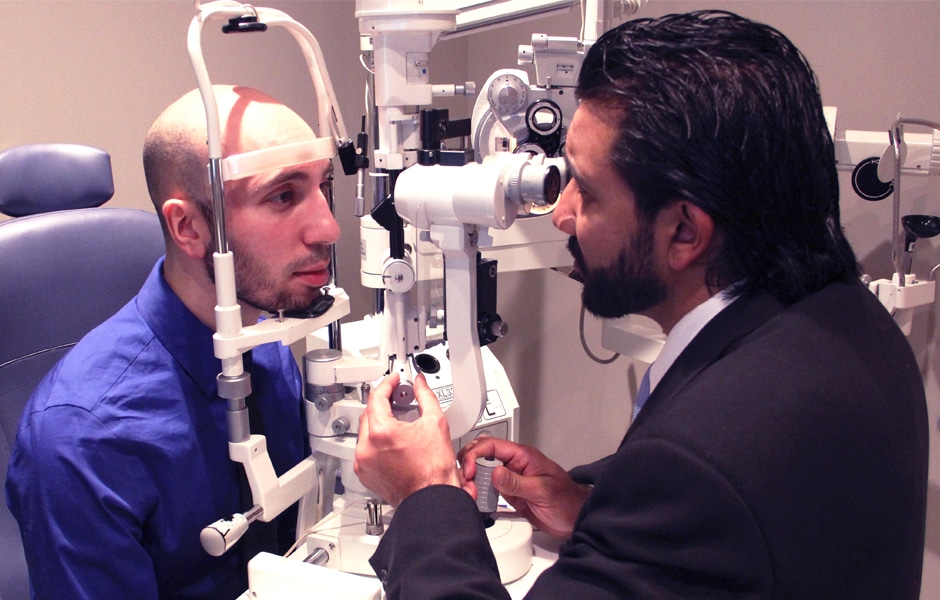Understanding the Various Vision Correction Procedures Available for Clearer View
In the world of vision modification procedures, a wide range of choices exist to address refractive mistakes and offer people with clearer sight. From the widely identified LASIK surgical treatment to much less intrusive procedures like PRK and implantable lenses, the field of ophthalmology provides an array of techniques customized to fit different needs and preferences. Each procedure comes with its very own set of factors to consider, benefits, and potential risks. Understanding the subtleties of these vision improvement techniques is essential for making informed decisions concerning one's aesthetic health. Let's check out the intricacies of these treatments and dropped light on the course to achieving improved vision clearness.
LASIK Surgical Treatment
LASIK surgical treatment is a typical refractive treatment utilized to deal with vision issues such as farsightedness, astigmatism, and nearsightedness. This surgical technique, which stands for Laser-Assisted in Situ Keratomileusis, intends to reshape the cornea to boost exactly how light is concentrated on the retina, eventually boosting vision clarity.
One of the primary advantages of LASIK surgical treatment is the fast improvement in vision experienced by people. Generally, LASIK surgery is a popular option for individuals seeking a lasting option for their vision troubles.
PRK Procedure

PRK is a suitable alternative for individuals with slim corneas or those at a higher danger of eye injuries, as it does not entail creating a corneal flap. The recuperation procedure for PRK is slightly longer contrasted to LASIK, as the epithelium needs time to regenerate. Individuals might experience pain and blurry vision for a few days adhering to the procedure.
Regardless of the longer recovery time, PRK can yield excellent lead to vision enhancement, making it a beneficial alternative for those that may not appropriate candidates for LASIK surgical treatment. - Eye Center Andalusia
Implantable Lenses
As opposed to PRK where the cornea is reshaped straight, implantable lenses use an additional approach for correcting vision by inserting synthetic lenses inside the eye. This treatment is specifically helpful for individuals with high levels of nearsightedness, astigmatism, or farsightedness who might not appropriate prospects for laser surgeries like LASIK or PRK.
Implantable lenses, additionally called phakic intraocular lenses, job by supplementing the eye's all-natural lens with an artificial one. These lenses can be placed before the natural lens (anterior chamber) or behind the iris and before the all-natural lens (posterior chamber) By changing the power and positioning of these lenses, eye doctors can successfully fix refractive errors and improve visual acuity.
One advantage of implantable lenses is that they are exchangeable and removable, giving adaptability for future adjustments. As with any kind of surgical treatment, there are risks entailed, such as infection or cataract formation. Individuals thinking about implantable lenses ought to talk to an eye care try these out professional to figure out the most suitable option based upon their individual demands and eye wellness.
Corneal Rings

The treatment for placing corneal rings is minimally invasive and fairly fast, usually performed as an outpatient treatment. Throughout the surgery, the ophthalmologist makes a small laceration in the cornea and inserts the rings at a details deepness. As soon as in position, the rings assist to reshape the cornea, offering a smoother surface for light to get in the eye, which can cause clearer vision.
Corneal rings are considered a relatively easy to fix treatment, as they can be eliminated or replaced if essential. While they may not totally eliminate the need for glasses or call lenses, corneal rings can dramatically improve vision high quality and general visual comfort for individuals with keratoconus or various other corneal abnormalities.
Refractive Lens Exchange
Adhering to the adjustment try this of corneal abnormalities with procedures like corneal rings, one more vision correction strategy that can attend to refractive errors is Refractive Lens Exchange (RLE) RLE is a surgical procedure that entails changing the eye's natural lens with a fabricated intraocular lens (IOL) to deal with refractive errors such as farsightedness, presbyopia, and nearsightedness. This treatment is particularly helpful for individuals who might not be suitable candidates for procedures like LASIK or PRK due to factors such as slim corneas or high refractive errors.
RLE is similar to cataract surgical treatment, as both involve removing the eye's natural lens; nonetheless, in RLE, the lens is clear, not cloudy as in cataracts. The fabricated lens dental implanted throughout RLE can be personalized to deal with the individual's particular refractive error, offering clear vision at various distances. Healing time for RLE is relatively fast, and clients can expect better vision not long after the procedure. Similar to any procedure, possible risks and complications exist, so a thorough examination with an eye care expert is vital to establish if RLE is the appropriate vision modification alternative.
Conclusion

In the realm of vision correction treatments, a multitude of alternatives exist to address refractive errors and offer click to investigate people with clearer sight.LASIK surgery is an usual refractive procedure made use of to remedy vision problems such as astigmatism, nearsightedness, and farsightedness.While also a typical refractive treatment, the PRK (Photorefractive Keratectomy) technique differs from LASIK surgical treatment in its technique to fixing vision issues.Following the adjustment of corneal abnormalities with procedures like corneal rings, another vision adjustment strategy that can deal with refractive mistakes is Refractive Lens Exchange (RLE) LASIK surgical treatment, PRK treatment, implantable lenses, corneal rings, and refractive lens exchange are all options that can address different vision issues.
Comments on “Cardiologist Andalusia: Holistic Strategy to Heart and Eye Health”